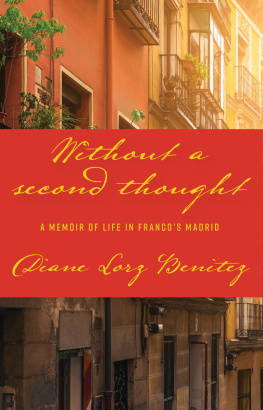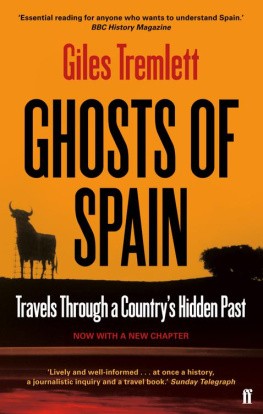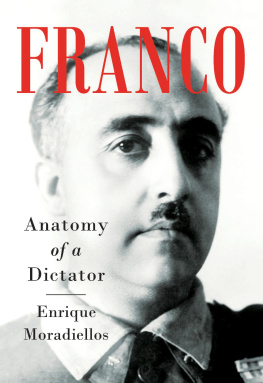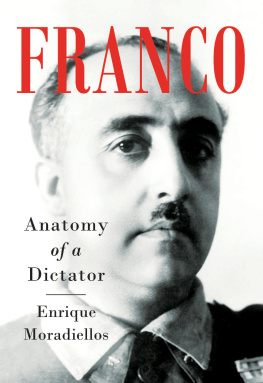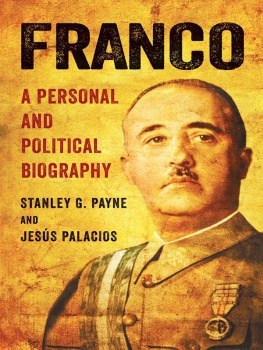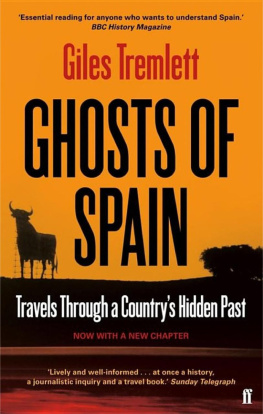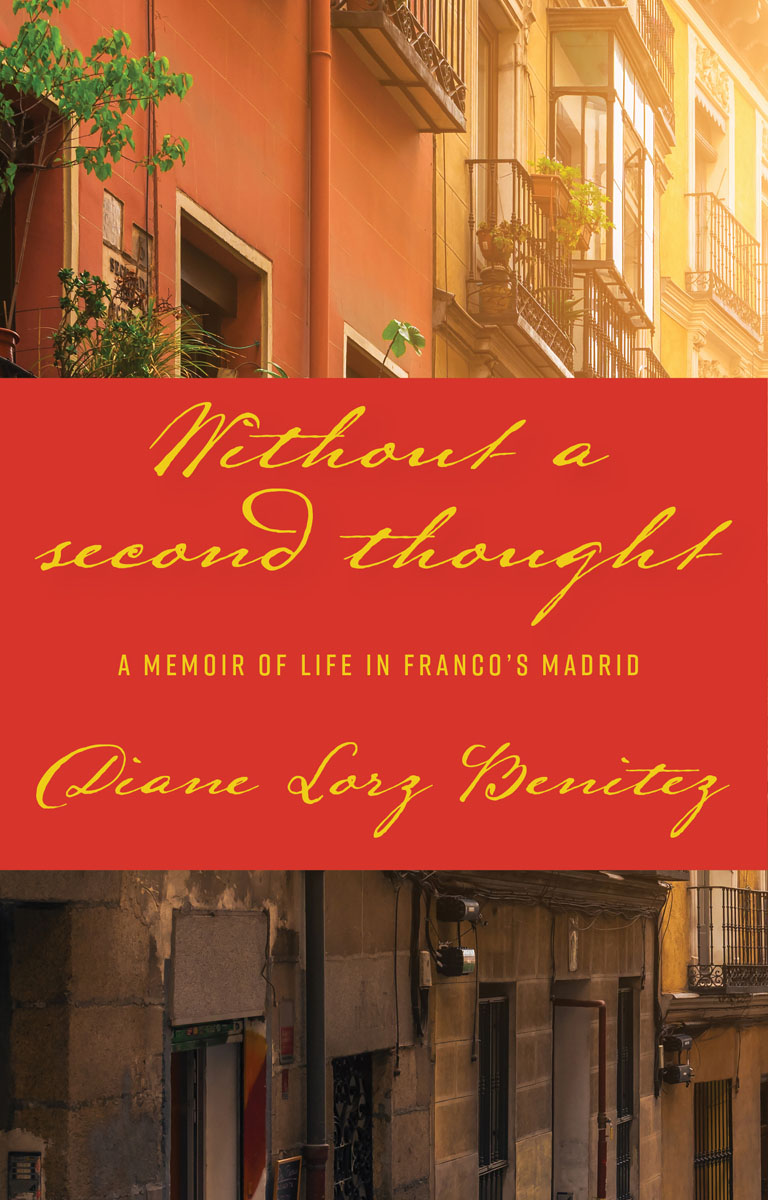


Walrus Publishing | Saint Louis, MO 63116
Copyright 2020 Diane Lorz Benitez
All rights reserved.
For information, contact:
Walrus Publishing
An imprint of Amphorae Publishing Group
a woman- and veteran-owned business
4168 Hartford Street, Saint Louis, MO 63116
Publishers Note: This memoir reflects the recollections of the author.
Manufactured in the United States of America
Set in Lamar Pen, Rift, and Baskerville
Interior designed by Kristina Blank Makansi
Cover designed by Kristina Blank Makansi
Cover photo: Shutterstock
Library of Congress Control Number: 2020943940
ISBN: 9781940442341
To Ana and Alicia, the heart of the story. And to Michael, Emmie and Sarah so they can know how it all began.
One thing I can guarantee, Diana: if you marry me, you will never be bored.
Alberto Benitez, September 1965
Caminante, no hay camino; se hace camino al andar.
Antonio Machado, 1912
Spain is a river of contradictions.
A country full of normally vociferous individuals, most Spaniards chose silence rather than speak about the civil war that killed or displaced over half a million people. Even after the death of the dictator, Generalsimo Francisco Franco, a generation would pass before they began a dialogue to shed light on that disaster and to give it a proper burialor at least to try. For over a decade, I swam in that river buoyed by the rich culture and the beauty of the country. I noted the scars of war that surfaced from time to time, but I didnt see the phantoms floating beneath. Neither did I feel the undercurrent of a different kind that ran in my own home. When I finally recognized it, I, too, chose silencefor a while.
I read somewhere that the light by which we see is constantly shifting. I waited to write this story until I thought the light was right.
Chapter 1
In the summer of 1936, a baby girl napped undisturbed on a screened porch in Meadville, Pennsylvania, a peaceful college town of 25,000 souls. The only sound to ruffle the afternoon air was the occasional blast of a train whistle. An ocean away, in the historic capital spread out on Spains central plain, a 10-year-old boy trembled in a dark basement while air raid warnings wailed outside, slicing through the heart of a city and a nation like a knife. In the years to come, their lives would come together and fall apart, forever changed by the deep scars that living through the violence and privation of war can cut into the psyche.

On July 18, 1936, Alberto Manuel Bentez Garcia sat in his room reading a Sherlock Holmes mystery, unaware that a military revolt against the government had ignited civil war. Only later that day did he learn the access roads to Madrid had been cut, trapping his eighteen-year-old sister Julina on the wrong side. She could not return from summer camp as planned, and Alberto would not see his sister again for nearly three years.

When I was seven, my mother, brother and I followed my father to his latest posting at an army base in southern California. I remember the towering palms and the smell of orange trees. I remember riding in a Jeep, and I remember our babysitter, a soldier named Skerble but whom everyone called Screwball. But most of all I remember the day my father took us to the base swimming pool. I couldnt swim a stroke, but that didnt stop me as I took a gulp of chlorine-scented air, leapt from the spot marked 9 Feet, and surrendered to a rush of pale blue bubbles. Unlike the grey lake back home in Pennsylvania, the pool water beneath the California sun was warm and inviting. I opened my eyes, ignored the brief sting, and kicked toward the bottom looking for the two white stones my father had dropped there. The stone hunt was his idea.
Youll be a good swimmer in no time, my father said. And youll never have to use water wings. That was fine with me. I didnt want to wear scratchy inflated armbands anyway.
I watched my father through the water. He sat on the bottom of the pool and made silly faces. I dont know how he held his breath for so long; I couldnt. I felt dizzy when I finally thrashed my way to the surface. But I had the stones.
Daddy, look! I found them.
I knew you would, he said in his chocolaty voice. He had a lovely singing voice, too, and sang songs like Beautiful Dreamer, and the one with my name. Smile for me, my Diane, he would singsoft and reassuring. My fathers eyes were darker blue than the water and his nose was flat in the middle where he broke it years before. I never knew how. When he hoisted me onto his shoulders, droplets ran along his upper arm shimmering on the words Semper Fidelis. It would be years before I worked out my fathers journey from an eighteen-year-old Marine to a forty-year-old captain in the Army Transportation Corps, but I knew the meaning of Semper Fidelis ever since I was old enough to recognize letters and ask my father about them.
Always faithful, he said with a grin. Yep, thats me. Then his brow furrowed, and his voice took on a serious tone. And thats the way you should be, too.
We walked to the wading pool where mother sat rubbing baby oil on my brothers back. David was three. He couldnt swim either. Mother managed an awkward sidestroke in the section marked 5 Feet but she didnt like to get her face wet and she swam with her head held stiff above the water and her eyes squeezed shut. I felt a little sorry for her; she was kind of a fraidy-cat. Not me. I was fearless in the waterat least I thought so until the day we went to the beach for the first time.

The warm sand swallowed my feet with every step. My legs felt heavy like they did when I tramped through the Pennsylvania snow. I didnt mind, but I was glad when my mother stopped, looked around and called out, How about right here?
A few steps ahead, my father turned and lowered my brother who had been riding piggyback. Looks good to me, he said.
Mother set down the basket that held a blanket, two striped towels and our lunch of bologna sandwiches with sweet pickles. I hoped she had packed some black olives because they were my favorite food even though Id eaten so many the week before that I got sick.
The beach extended as far as I could see. The ocean mumbled under its breath, and figures bobbled on the water far from shore.
Look at those people, I said. Do they have water wings?
My father opened the basket, took out the blanket, and then looked toward the ocean. Theyre riding waves, he said. Just wait a minute, and Ill show you how. He handed a corner of the blanket to my mother and they unfolded it, sidestepping David who was busy kicking up sand clouds.
I didnt wait. I went toward the water to get a better look. I wasnt afraid. I was never afraid; my father had seen to that. Even in the deep end of a pool I knew how to wriggle around and float on my back.
I walked to where the pale soft sand turned dark and solid; my feet no longer sank. A wave rolled in and I stood firm, giggling at the slap of water that hit my knees. The wave uncurled behind me, leaving a thin line of grey foam and a row of shiny pebbles. White seagulls soared and swooped overhead with a noise that sounded both threatening and wistful. I didnt like them. Another wave hit me, stronger this time, and I felt the sand slip out from beneath my feet. The earth churned, and my arms flailed, fingers grasping, but there was nothing there, nothing to hold on to.
Next page
